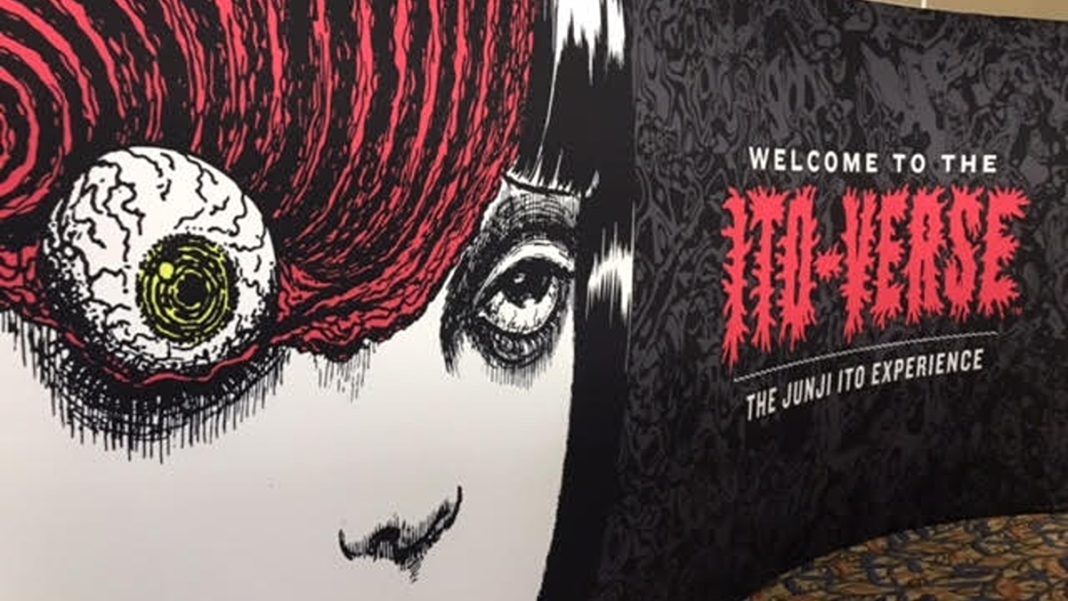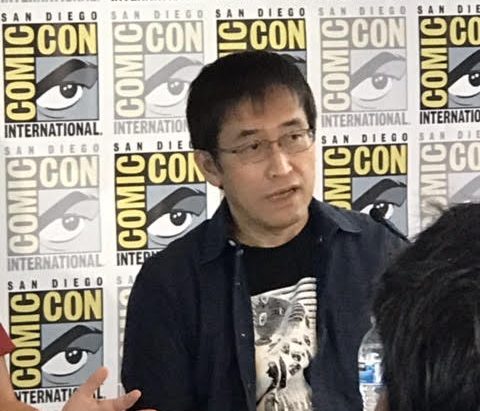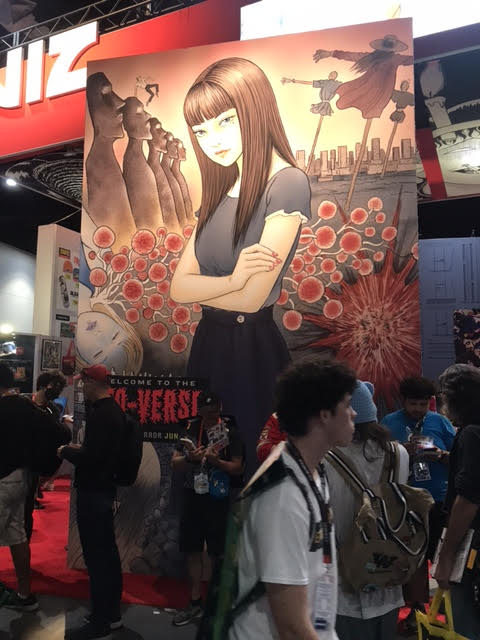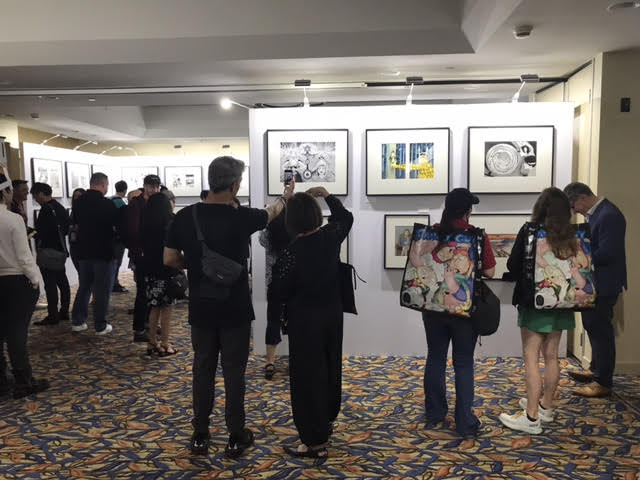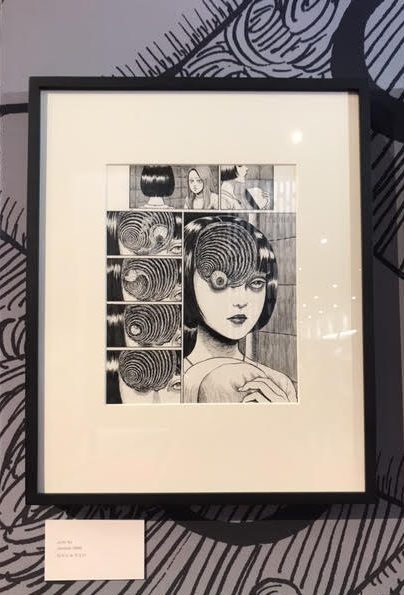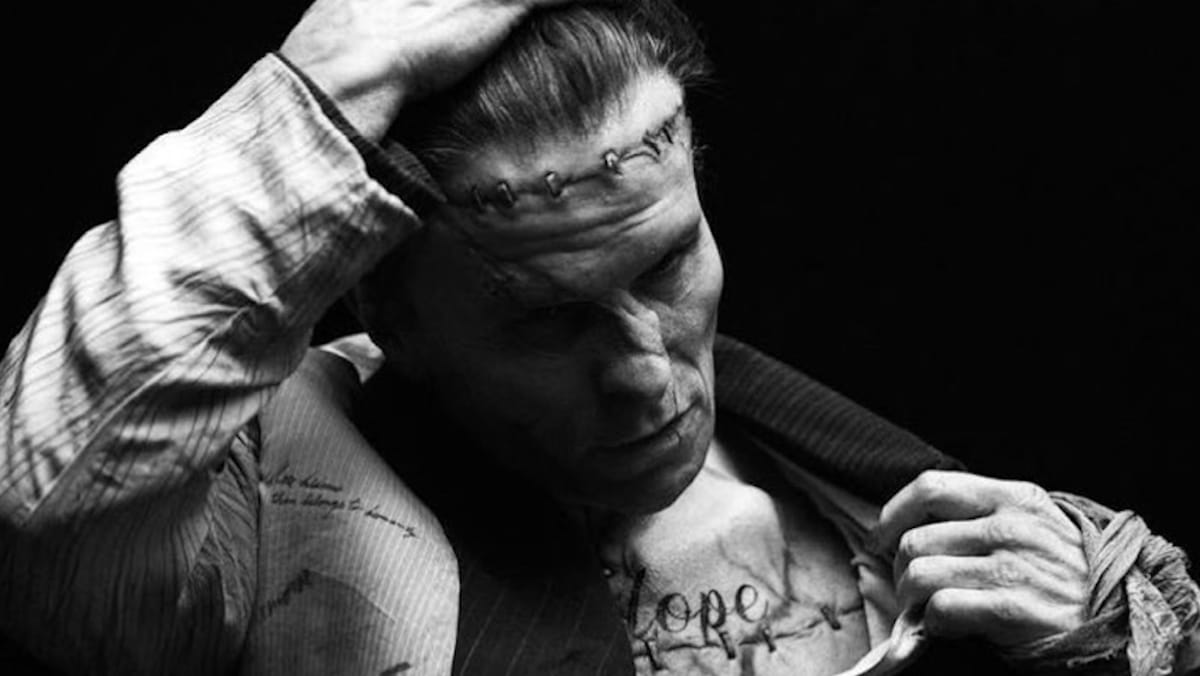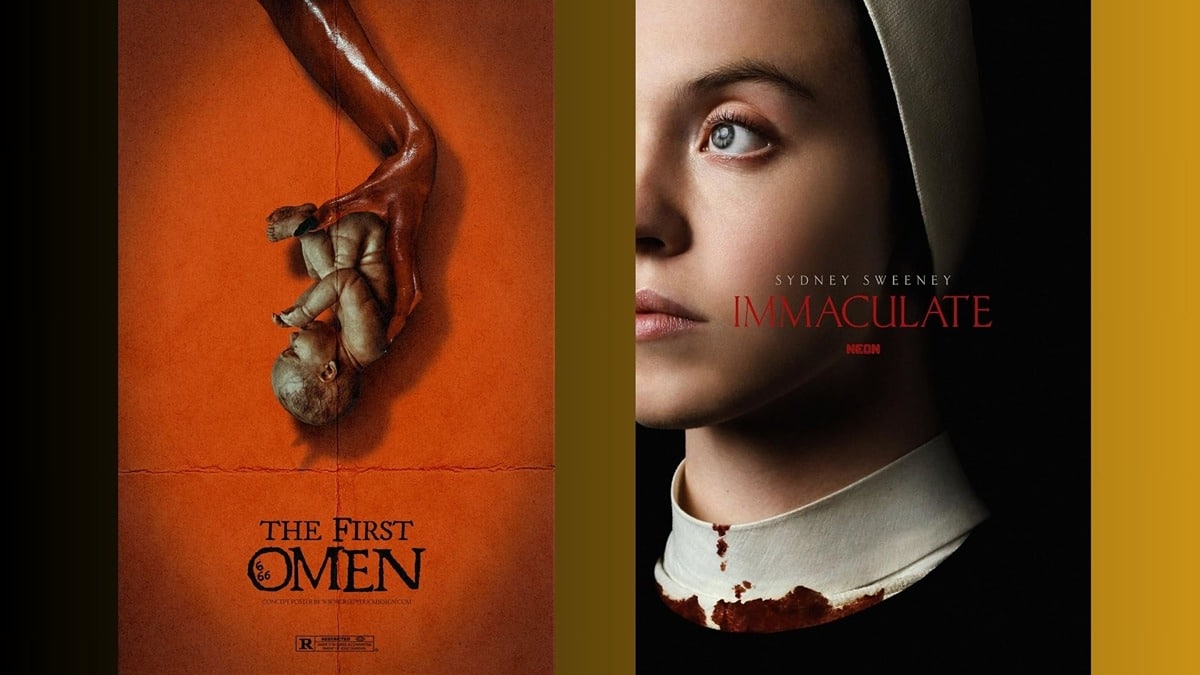When a Master of Horror visits a comic convention, there’s very little the event can do to avoid being taken over by the sweet darkness of fear. Junji Ito proved that with his first-ever visit to San Diego Comic Con, and he went big.
The legendary creator of manga horror classics such as Uzumaki and Gyo had a panel at the San Diego Library, another one at the Convention Center on the “Ito-Verse,” an early release for his short story collection Soichi, a giant Viz Media booth largely dedicated to his work complete with original pages from some of his most popular stories on display, and an entire art exhibit focused on his unique style of horror called “Welcome to the Ito-Verse: The Junji Ito Experience.”
Junji Ito didn’t just show up, he manifested. His presence extended throughout the show floor. It was impossible not to know he was there and that it was important he was. The Viz booth even had blown up images of some of his most iconic illustrations up on the ceiling, looking down on congoers with the intent of terrifying anyone who dared gaze upwards.
The library panel, which was translated with joyous energy by Junko Goda, offered curious insights into the thought process behind Ito’s horror, his philosophy regarding the genre, if you will. Ito mentioned that the idea behind his work is “to visualize things that don’t exist in reality, to find a balance between beautiful and grotesque.” It’s a sentiment that is evident in his work, pointing to a style that produces terror that’s hard to look away from. It’s not just because of the monstrosities captured in each panel, but because of the amount of detail and technique on display.
“The main draw of horror is the unknown because it invites creating stories in your head with what can’t be seen or understood,” added Ito, speaking to his appreciation of HP Lovecraft and cosmic horror and how it continues influencing him. It’s an interesting observation considering Ito never shies away from putting his horrors front and center in his stories. This doesn’t mean the unknown is cast aside by doing this. Quite the contrary. Being treated to the full visual of the thing haunting his characters challenge readers to explain the impossible things Ito puts in his pages.
This is perhaps what makes Ito’s version of the unknown so shocking and iconic. Rather than drenching the scary stuff in shadows, he gives them the spotlight and invites exploration. The deeper you look, the more disturbing the experience. And even that doesn’t explain the totality of the horror. If anything, it complicates it and makes it more disquieting.
The Ito-Verse exhibit celebrated this with over 90 pieces of work that covered his books and even the recent Magic: The Gathering “Secret Lair” cards he illustrated, which were released last February. If you think the art in the books are detailed, watching it up close is like taking a step into an even deeper and darker dimension hidden in the mind of the creator himself.
Future conventions, both SDCC and others, should take note. Exhibits such as this one should become the standard with the intention of growing their presence on the show floor at a yearly basis. The exhibit was located at the Marriott Marquis hotel right next to the convention center and it was essentially the beating heart of the Ito experience. It fostered an eerie but relaxed environment where fans could enjoy the intricacies of Ito’s methods and the breadth of terrifying detail present on each page. From Tomie to samples from the many short stories Ito has in his library, each page was a door into the creative process behind the man that has perfected the art of scaring readers.
It was spectacular and deserved to be experienced. If you thought the spirals in Uzumaki were worlds unto themselves, seeing the originals reveals entire galaxies of terror.
I do hope future exhibit endeavors spill onto the show floor. The Viz Media booth had a few pages for attendees to enjoy, but having it all in the middle of the convention center itself would’ve been quite interesting, if only to gauge how many people would take the time to engage with it. I suspect it would’ve been a hit should it have gone that route. It’s something to consider moving forward.
Junji Ito got special treatment at this year’s Comic Con, and rightfully so. His work and its reach demanded it. Like Stephen King, Ito has transcended the medium he is known for and has become an icon worthy of centering an entire event on. SDCC responded in kind by giving fans an Ito experience that can shift the convention’s culture and create a whole new level of expectations for future artists and creators that could the same level of consideration. Here’s hoping they continue to build upon their success.
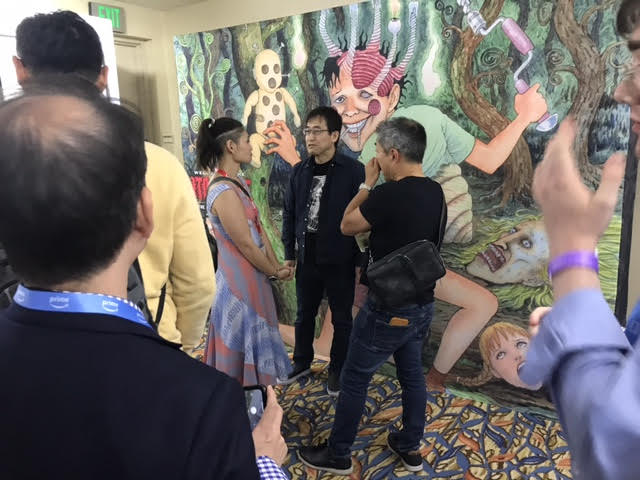
Miss any of our earlier SDCC ’23 coverage? Find it all here!


